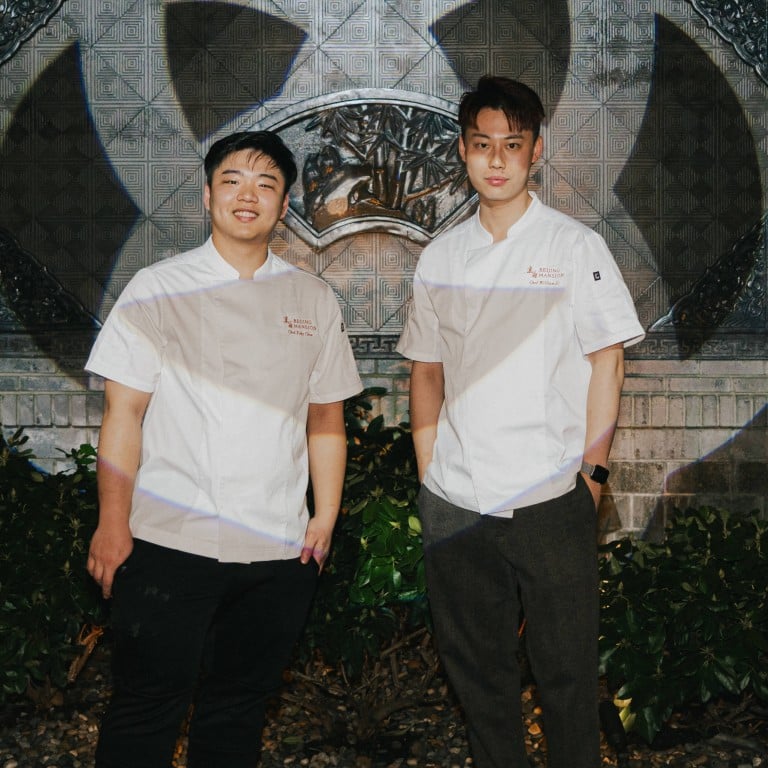
Vancouver area’s Chinese food scene gets ‘a new perspective’ as young, French-trained chefs give the cuisine a modern twist in a traditional setting
- Two chefs in their 20s cooked Chinese food with French flair at a meal at Beijing Mansion, an events space built in Chinese courtyard house style near Vancouver
- Foie gras, crab roe egg ravioli and Peking duck spring rolls featured in an event to renew the area’s ‘dated’ scene, run by a Chinese restaurant awards judge
Beijing Mansion, a luxurious private events space designed in the style of a traditional Chinese siheyuan, or courtyard house, is the only one of its kind in Canada.
In Richmond, just south of Vancouver, in British Columbia, Canada, the venue was put in the spotlight in November 2023 when it gave two young chefs the opportunity to demonstrate their culinary flair and approach to modern Chinese food.
William Li, 27, and Toby Chen, 25, were invited to cook for more than 50 guests at the New Wave 2023 dinner hosted by the Chinese Restaurant Awards at Beijing Mansion.
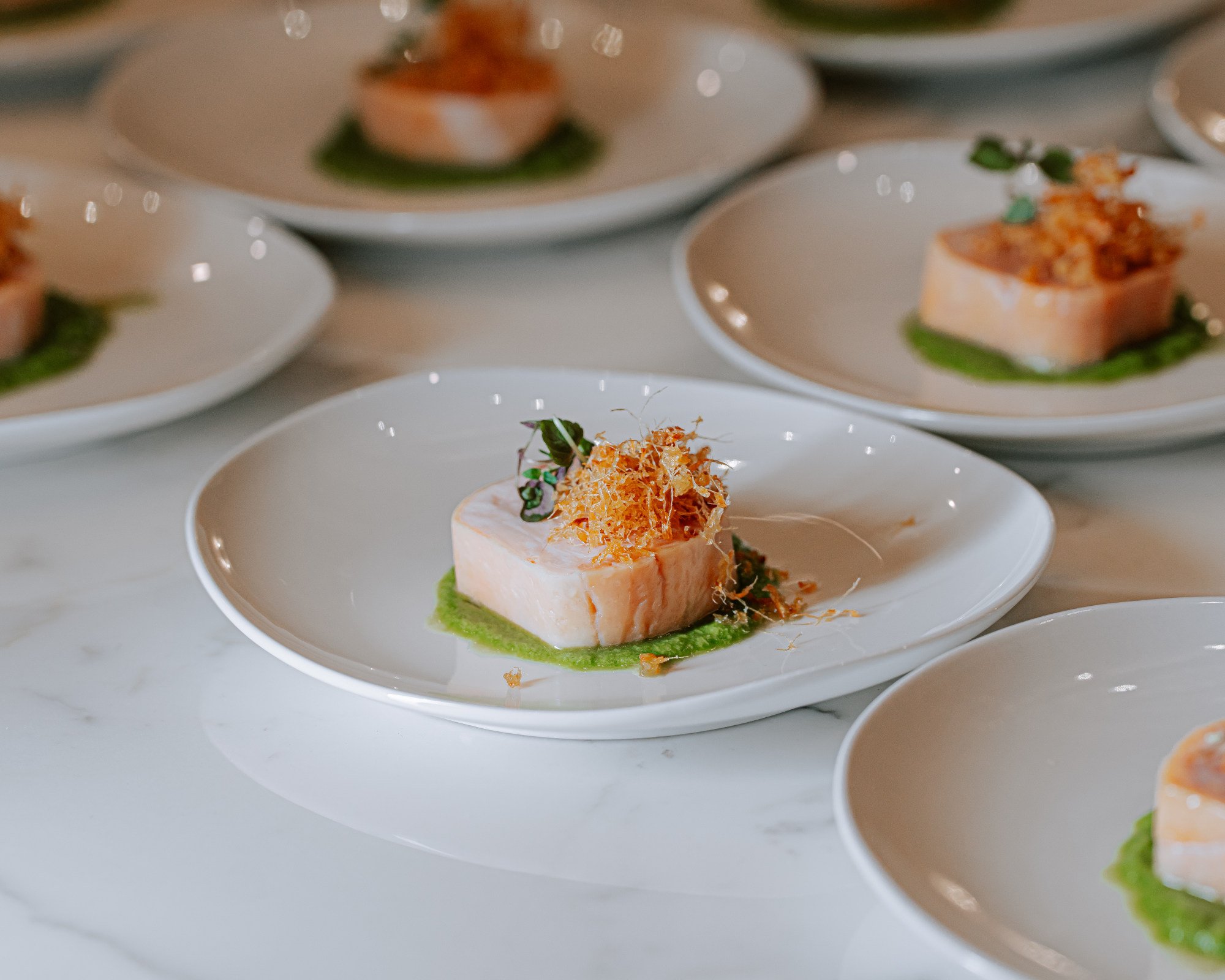
Li and Chen first met while working at Vancouver restaurant L’Abattoir, which serves Pacific northwest fare using French culinary techniques.
Li, who has been with L’Abattoir since 2020, was recently named chef de cuisine. Chen is sous chef at Missing Chopsticks, a fine-dining French-Asian restaurant in Richmond.
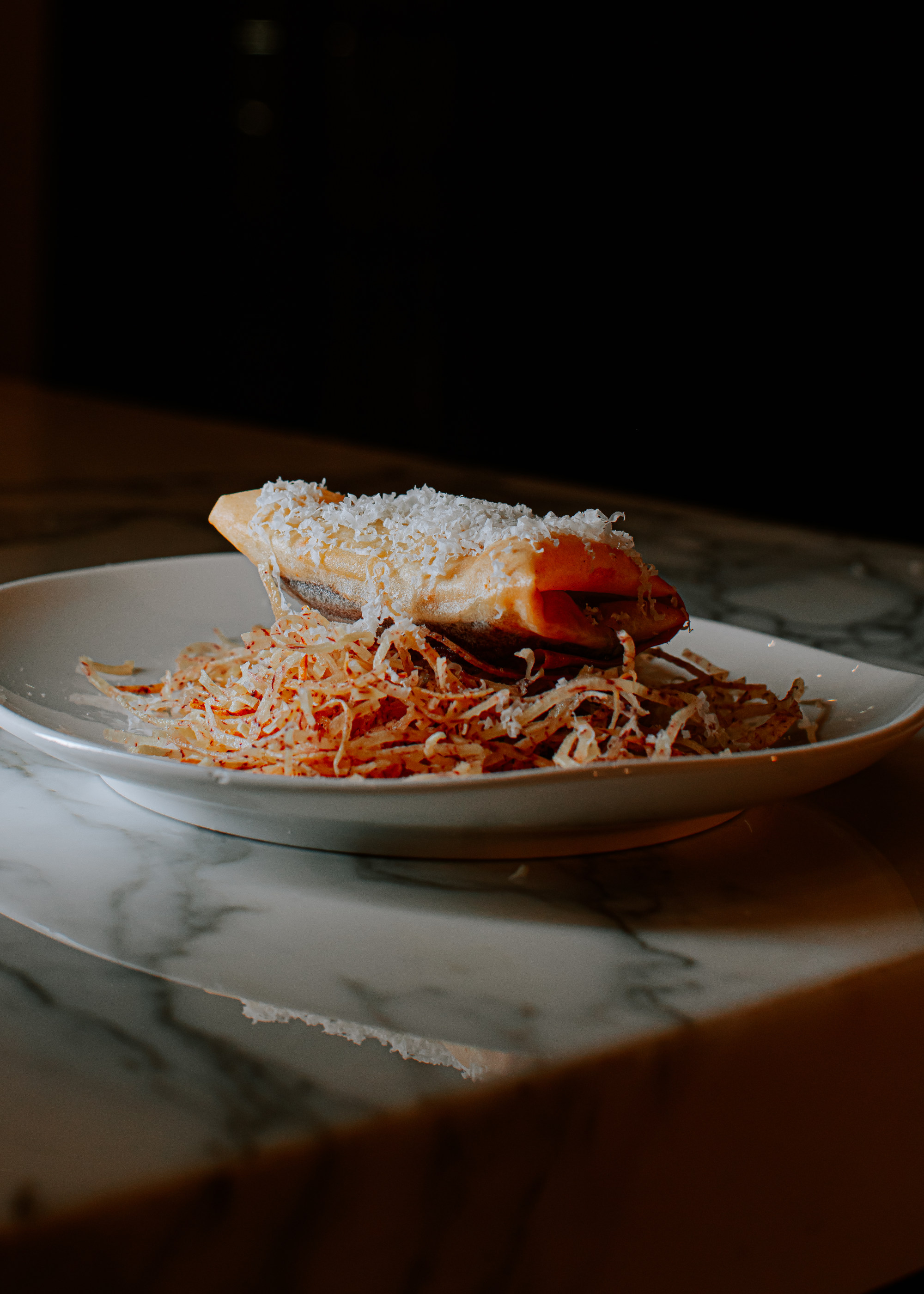
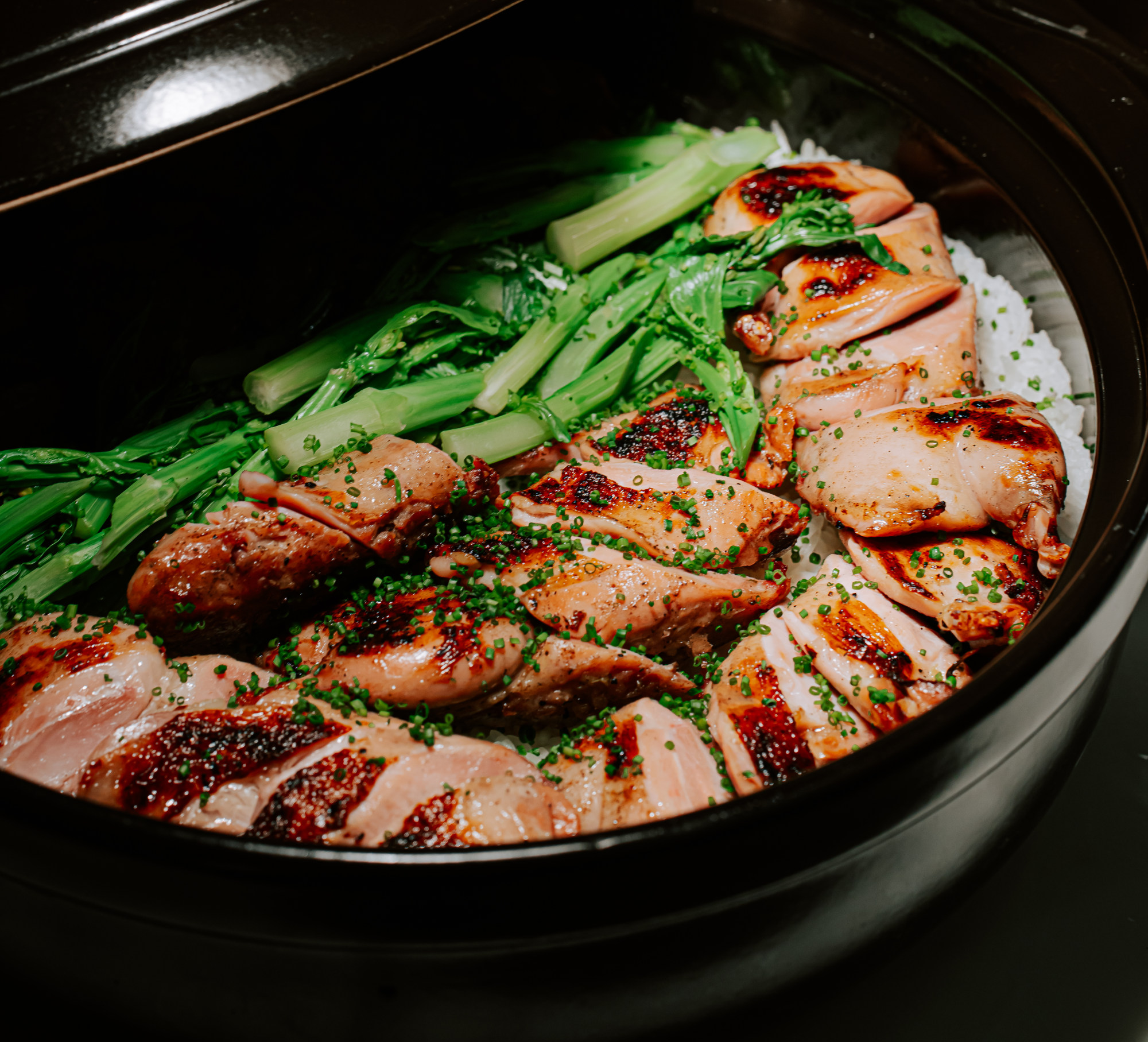
Soon the duo caught the eye of Rae Kung, the general manager of Beijing Mansion as well as managing director of the Chinese Restaurant Awards, which judges Chinese food in Metro Vancouver.
“Their food is a Chinese-French presentation,” Kung says of Li and Chen. “They are French-trained and they know how to cook Chinese.
“For me, it’s natural to show people what is possible with Chinese food and elevate the experience,” she says, adding that Vancouver’s Chinese food scene feels dated, still offering dishes from the 1980s and 90s, when many Hong Kong chefs immigrated to the Canadian west coast city.
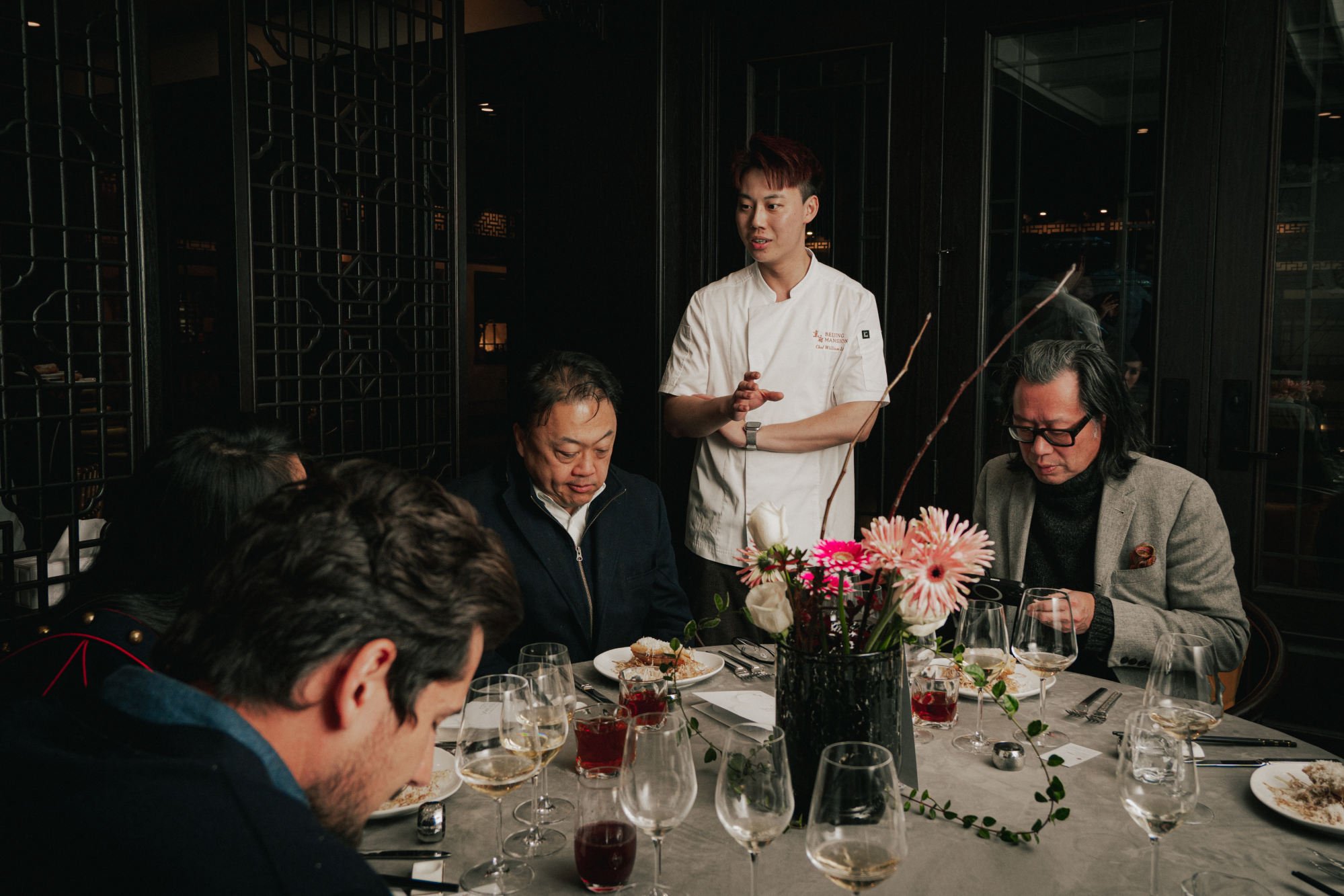
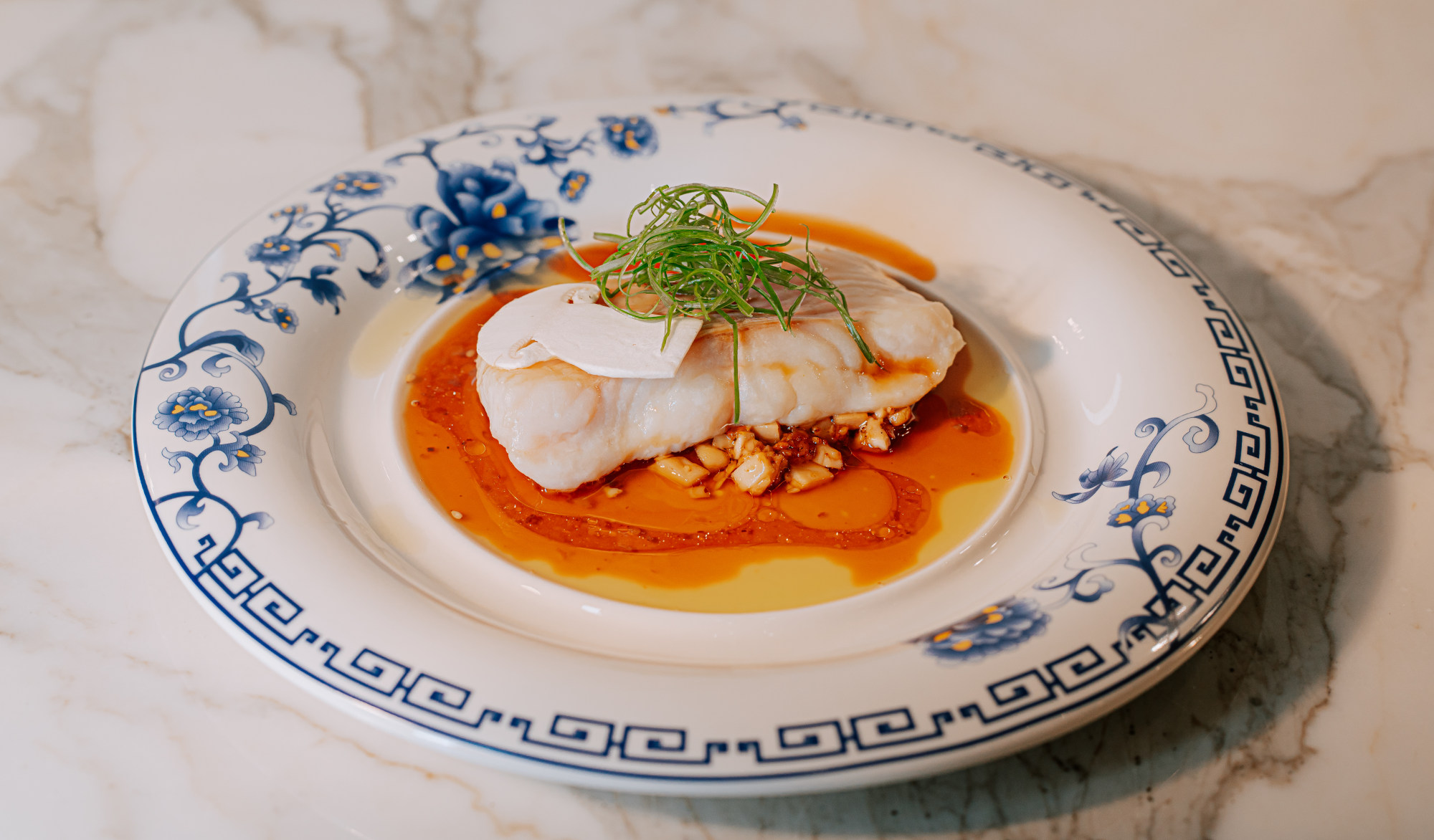
“Those chefs are retiring, so I want to introduce a new perspective to people here. Will and Toby know each other so well that it’s really a four-hands dinner.”
The dinner was not without its challenges. The courtyard house was originally built as a private residence, and while it has both Western and Chinese kitchens, they are not commercial kitchens and did not have enough space for the two chefs to cook everything on-site.
So Li and Chen had to do as much preparation work as possible in a different kitchen a day or two in advance.
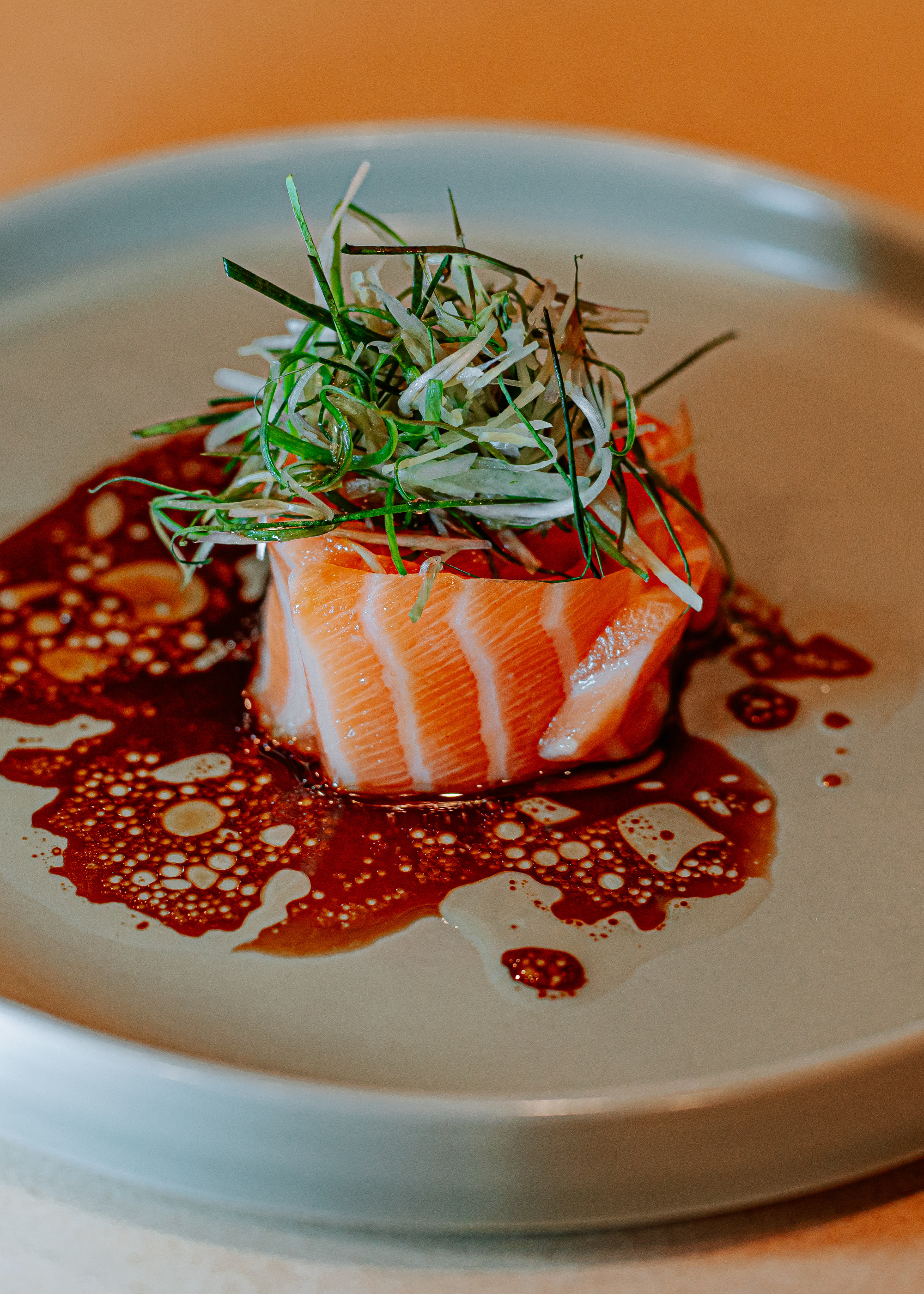
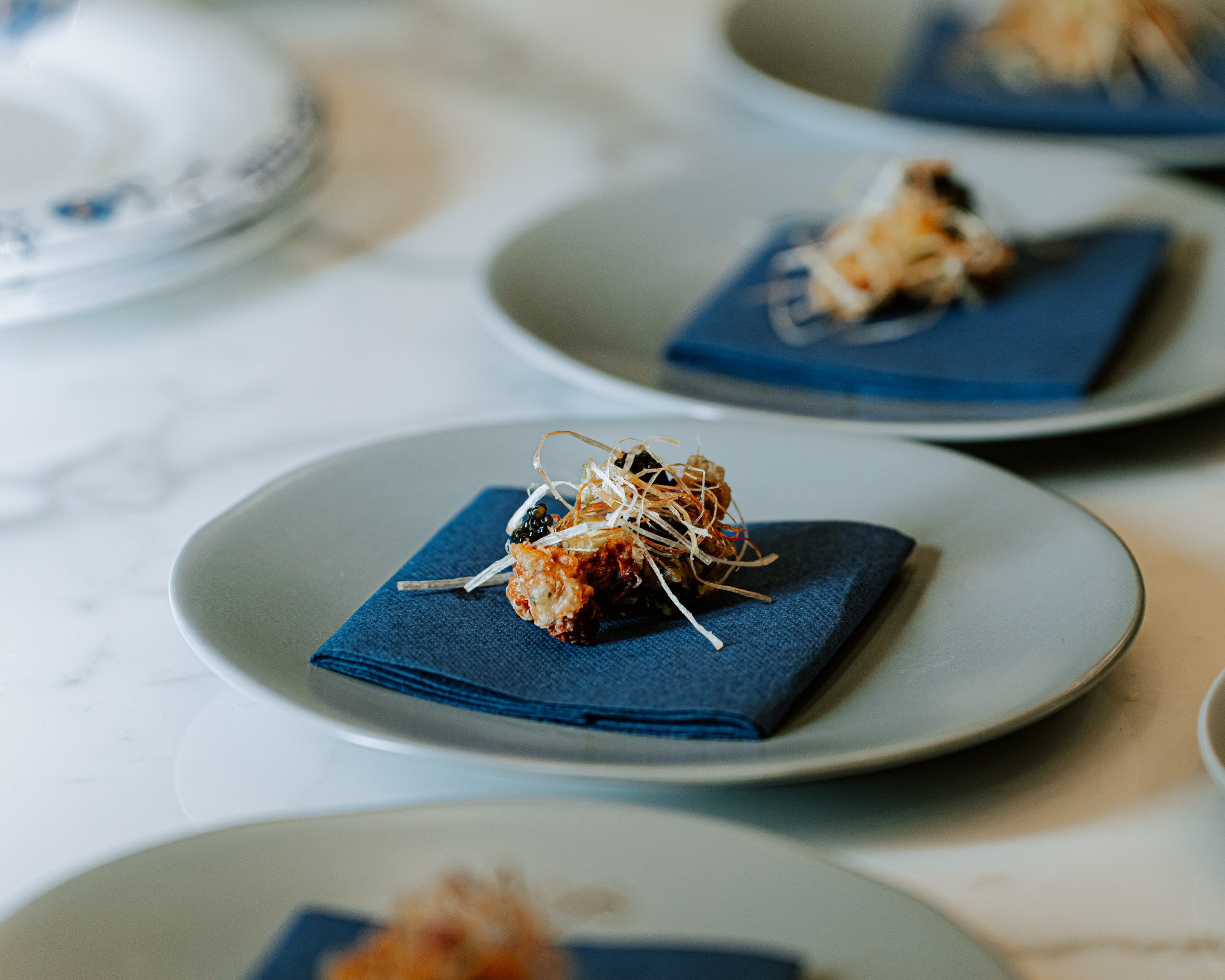
Walking into Beijing Mansion for the dinner, visitors are transported into a serene, sophisticated traditional Chinese setting.
The chicken was deboned and the breast meat was marinated in brine for 12 hours while the leg meat was made into a sausage. Then the breast meat was ground and incorporated into the terrine, which was placed in a sous vide bath.
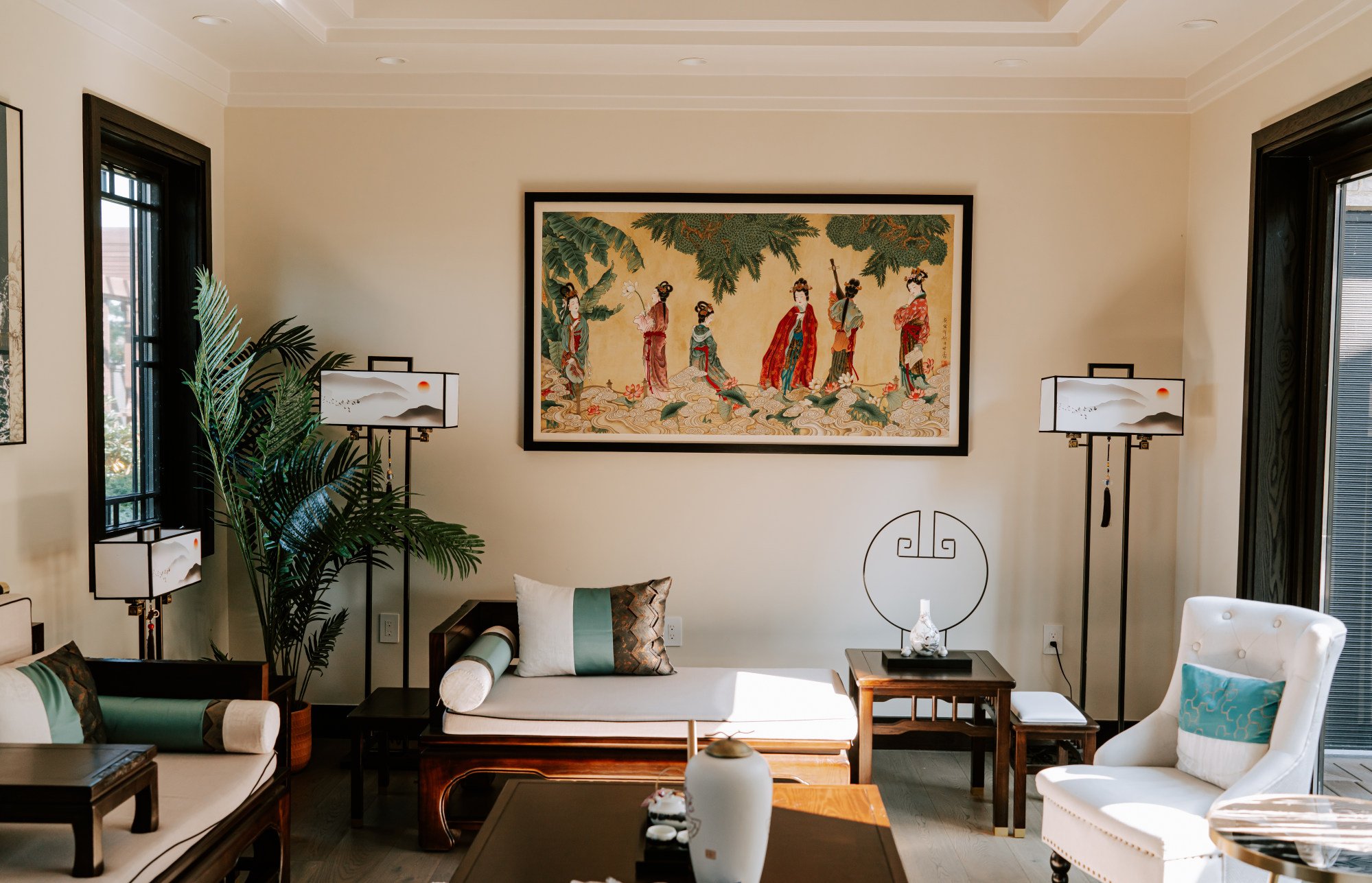
Each guest was served a slice of the terrine encased in chicken skin and seasoned with the scallion and ginger sauce made in the style of a chimichurri.
Li’s Peking duck spring roll incorporated the tender meat, cucumber and plum sauce in a pastry and was garnished with Parmesan cheese shavings for extra umami.
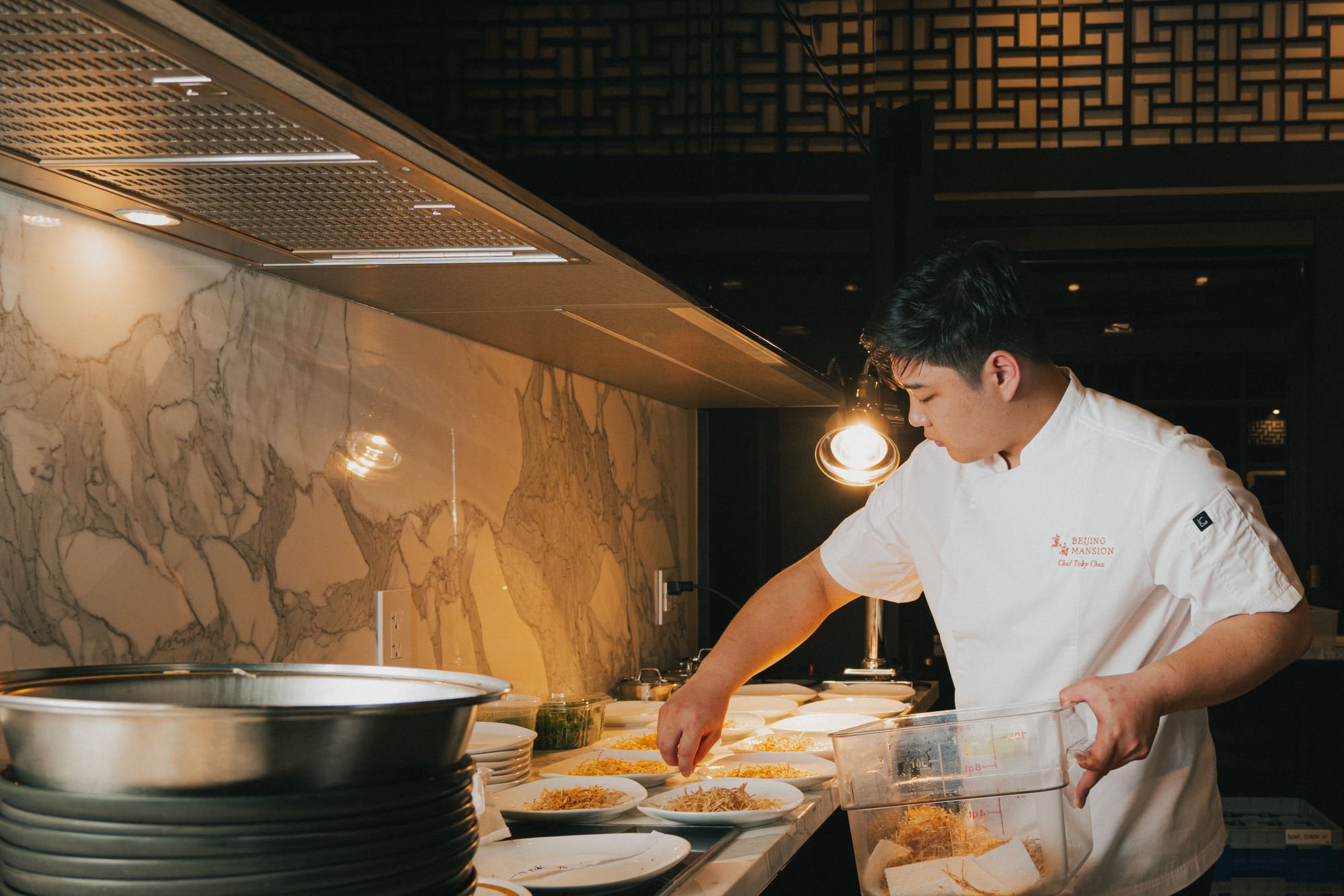
He extracted the meat from the large crustacean to make Chinese-style ravioli, which was then placed on top of a silky egg custard seasoned with crab roe.
Despite some hiccups, including having to ferry food to the different wings of the courtyard house, which resulted in the dishes arriving lukewarm – a big no-no in Chinese dining culture – because of the cold weather, feedback from the diners was positive.
“The menu was big and even though we wrote a really detailed list of ingredients needed, we were missing something and I had to run to the grocery store to grab it at the last minute,” recalls Li with a chuckle.
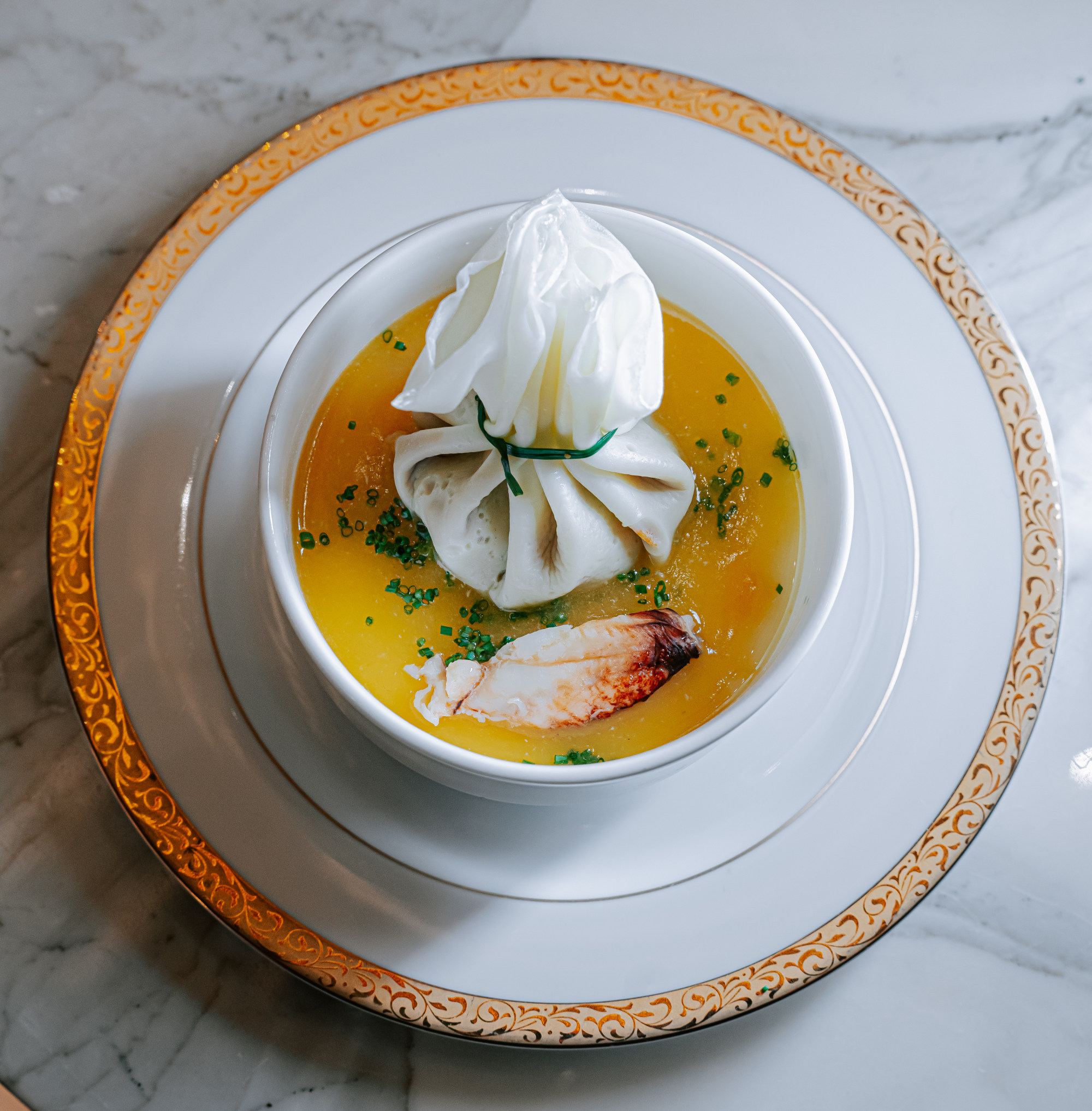
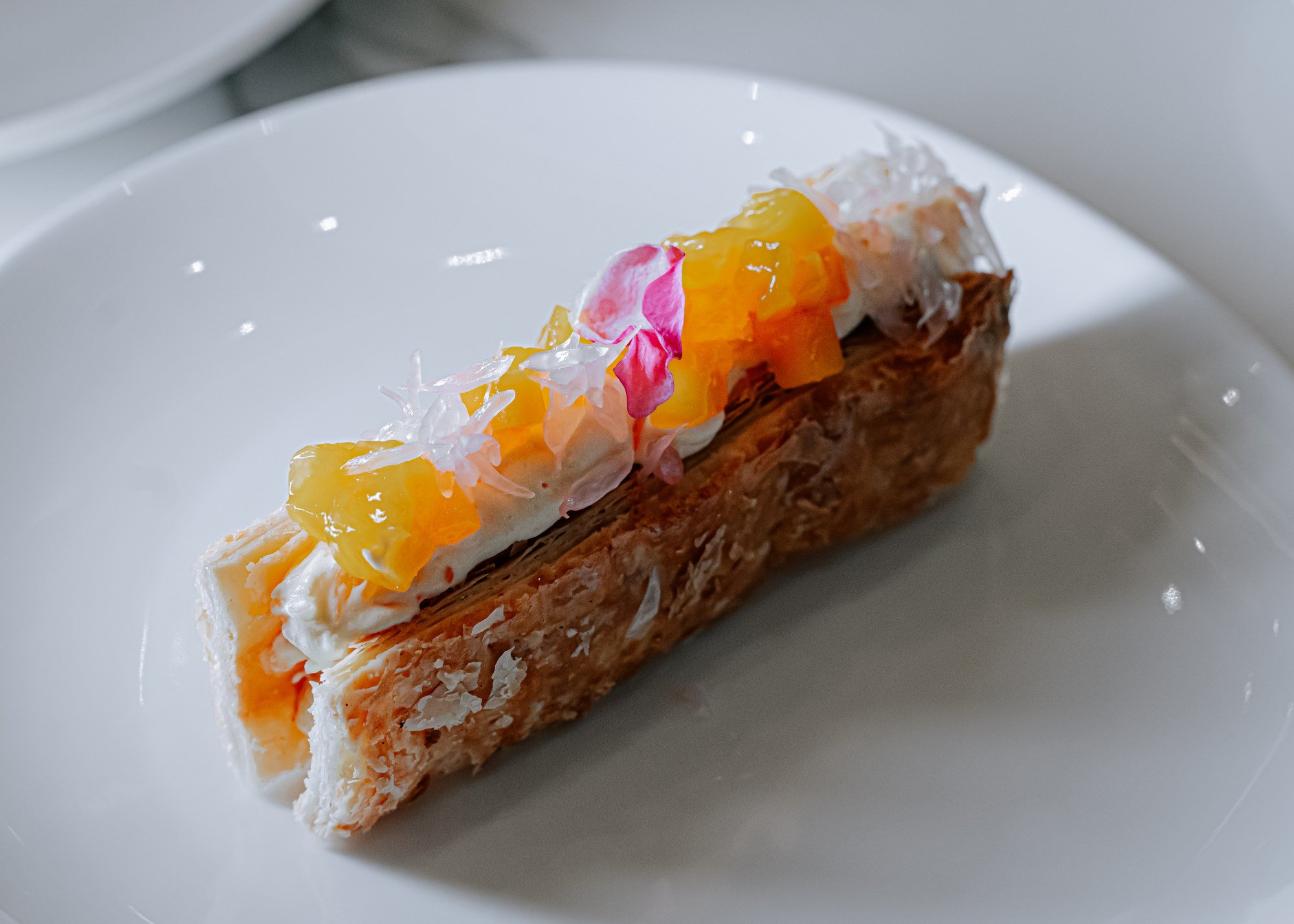
“Beijing Mansion is not like a restaurant, so it wasn’t fully equipped, and there wasn’t as much storage space as a restaurant, so it took time to get used to it,” says Chen.
Li is originally from Hebei province and grew up in Beijing. He came to Victoria, British Columbia, in 2015 with the intention of studying engineering.
However, when he watched YouTube videos of people cooking, he was hooked, and changed his career path by enrolling in a two-year hospitality management programme at Vancouver Island University.
He’s shaking up Toronto’s Chinese food scene, but he learned from YouTube
After graduating, he worked at the Five Sails restaurant in the Pan Pacific Vancouver hotel. There he learned to make classic French dishes before moving on to L’Abattoir.
Chen came to Vancouver via Guangzhou the same year, to attend high school before studying culinary arts at Vancouver Community College.
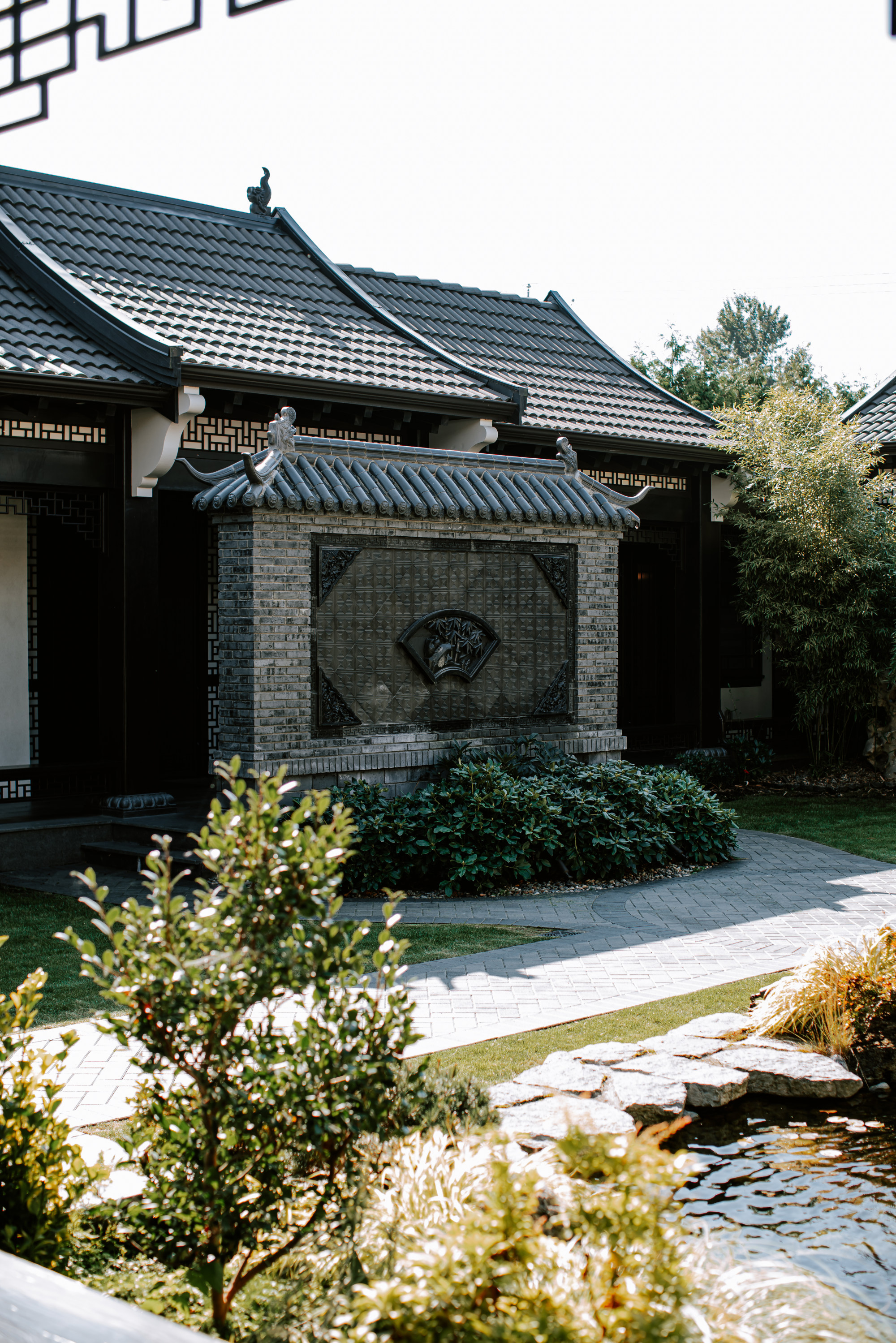
Li and Chen’s one-off dinner was the largest event Beijing Mansion has hosted to date. Just over seven years ago, the three owners bought the agricultural land on which it stands and then came up with the idea of building a traditional siheyuan.
One of the owners is Shanghai-based architect Jerry Ning Jun, who designed the building.
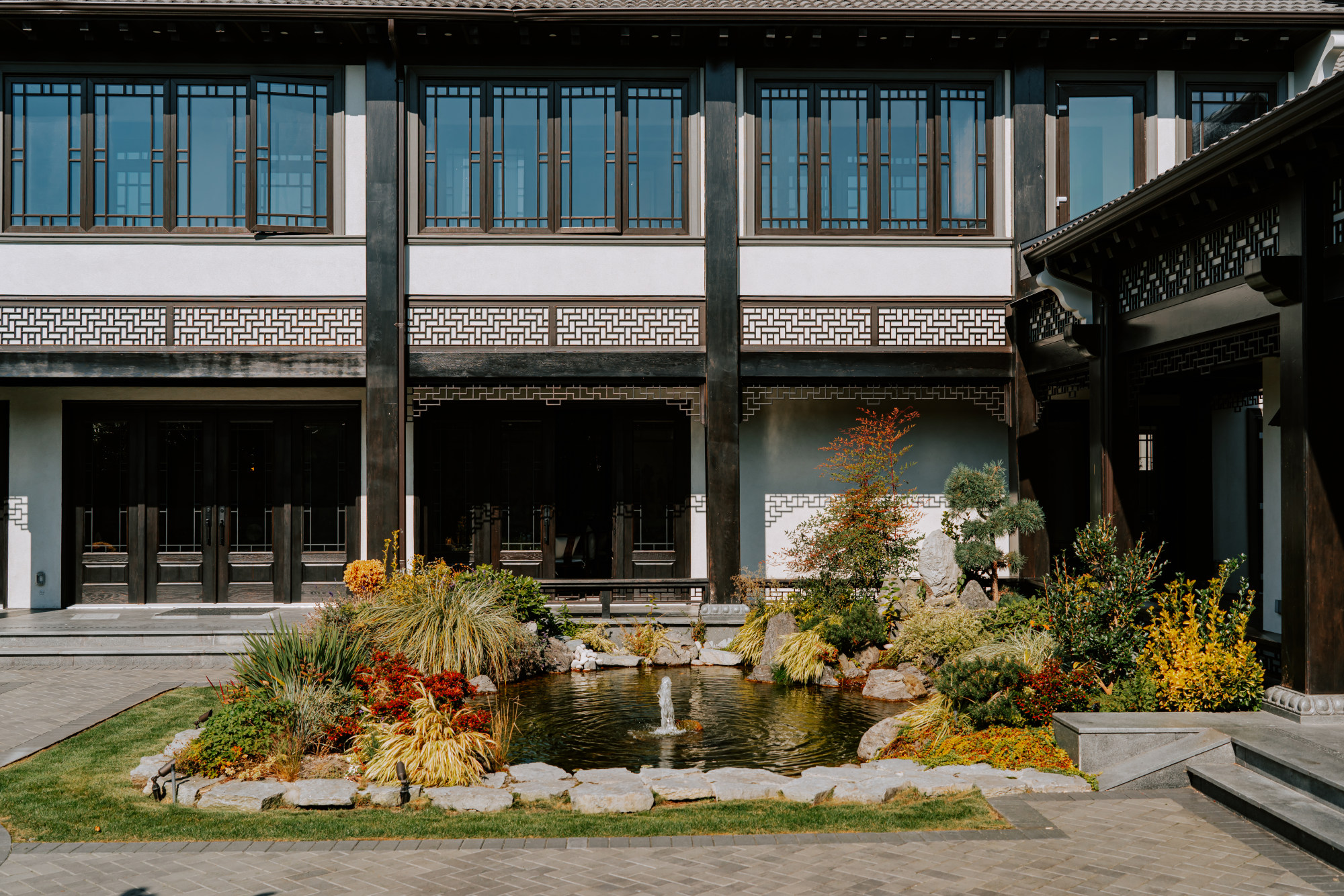
Kung says the owners decided to turn the home into an events venue after friends raved about the property.
“This is a place that is good for business meetings. People don’t feel like they’re in Vancouver,” she says, adding it is very private. “Before, the owners signed business deals in Starbucks, but this is a nice venue to host clients and make them feel special.”
She wants to use Beijing Mansion as a platform for young Chinese chefs such as Li and Chen to evolve Chinese food using the culinary skills they have learned.
“They are not master chefs but they are young chefs who are open to be challenged,” Kung says. “This is great and this is what we are looking for in Vancouver.”

